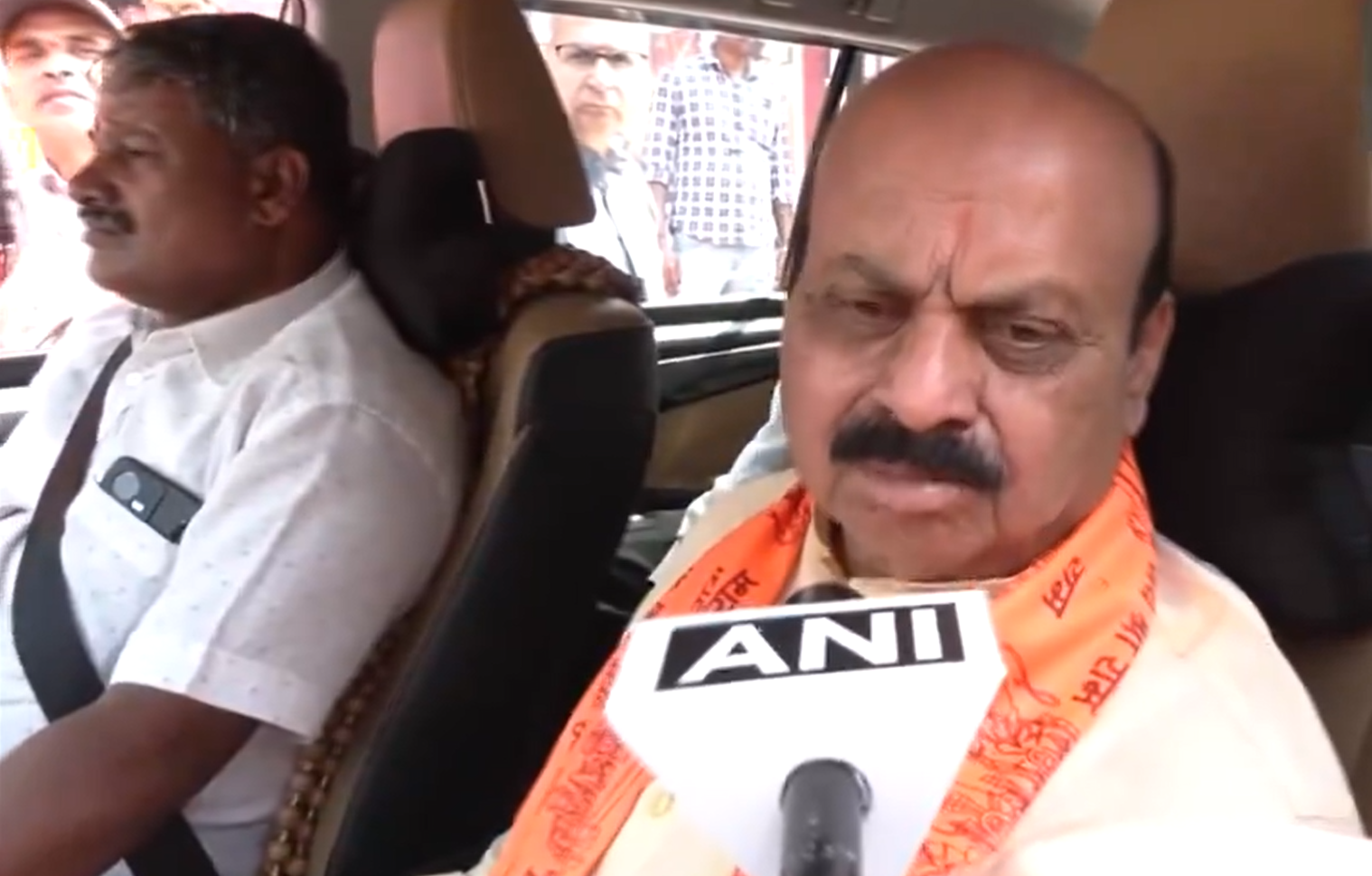Bengaluru, Karnataka: The grand consecration ceremony of the Shri Ram Pran Pratishtha temple in Bengaluru has sent ripples through the Indian political landscape, with BJP leader and former Karnataka Chief Minister Basavaraj Bommai making a bold claim – Prime Minister Narendra Modi’s installation of the “Maryada Purshottam” Lord Ram’s idol marks the dawn of a new era, a “Ram Rajya” for India.
CM Basavaraj Bommai, speaking at the ceremony amidst a throng of devotees and party faithful, drew a direct parallel between the mythical ideal of Ram Rajya, a kingdom ruled with righteousness and prosperity, and the vision he believes PM Modi holds for India. He declared, “The ‘Maryada Pushottam’ Shri Ram’s idol has been installed by the modern ‘Maryada Purshottam’ PM Narendra Modi. This is the beginning of Ram Rajya in India. This is why PM Modi has called the next 25 years as ‘Amrit Kaal’, the nectar of immortality.”
Bommai’s statement is sure to ignite debate across the political spectrum. While supporters of the BJP and right-wing Hindu groups are likely to embrace the sentiment, critics may see it as an attempt to appropriate religious symbolism for political gain. They might argue that equating a temple ceremony with the establishment of an ideal kingdom is simplistic and overlooks the complex challenges facing contemporary India.
However, beyond the immediate political ramifications, Bommai’s words highlight a deeper yearning for good governance and social harmony among a significant section of the Indian population. The ideal of Ram Rajya, often invoked in political discourse, represents a society governed by justice, equality, and compassion – values that resonate deeply with many Indians.
PM Modi’s “Amrit Kaal” vision, focusing on development, self-reliance, and cultural rejuvenation, aligns with this yearning for a better future. Whether or not one agrees with Bommai’s specific claim about the temple ceremony marking the start of Ram Rajya, his statement underscores the significant role that religious and cultural sentiments play in shaping India’s political landscape.
The coming years will be crucial in determining how PM Modi translates his “Amrit Kaal” vision into reality. If he can deliver on the promises of good governance, inclusive development, and social harmony, then Bommai’s bold claim might hold some weight. However, if the gap between rhetoric and reality widens, it could fuel disillusionment and further divisions within Indian society.
Only time will tell whether the Shri Ram Pran Pratishtha ceremony in Bengaluru truly marks a turning point for India. But one thing is certain – Bommai’s statement has ignited a conversation about the kind of future Indians desire and the path the country must take to achieve it.



